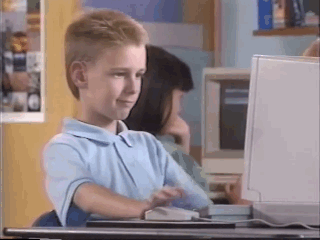
G’day, and welcome to PEDESTRIAN.TV’s crib sheet for today’s Federal Election. Maybe you’re standing in line at your local primary school RN waiting to vote – hell, maybe you’re balancing your phone in one hand, and a dank democracy snag in the other – so we’ll try to keep this short and shiny.
This is our take on all matters relating to cash money, and how each of the major political players say they’ll divvy up our nation’s dosh. That includes your money, too, so y’all best be paying attention.

Of course, Duncan Storrar’s saga on Q&A was sparked by that decision.
.@KellyODwyer says it’s all about balance & we’re making the right choices to grow the pie. #QandA https://t.co/I8fX9OHlAw
— ABC Q&A (@QandA) May 9, 2016
Labor have signaled they’ll cut small business taxes to similar (but slightly higher) levels than the Liberals, but they’ve shitcanned the Coalition’s push to eventually bring every company’s tax rate down to 25%.
The Greens have stated they won’t even be looking at cuts to income and company tax this election, instead focusing on reigning in large corporations and their tax avoidance schemes.
If you bloody hate the fact the Feds take some of your moolah at all, have a gander at the Liberal Democrats‘ take on the matter. They’re allergic to tax in the exact same way firebrand Senator David Leyonhjelm isn’t allergic to his cats.
Righto, here’s the big one. One of the main sticking points this election for anyone who doesn’t yet possess a property empire is the fact negative gearing lends such massive benefits to those who already do.

We could hold forth on this one for the rest of this here article, but it plays out like this:
The Liberals are reticent to fiddle with negative gearing nor Capital Gains Tax concessions. It’s part of their belief that those benefits aid families trying to “invest and provide a future for their families.”
The Liberals in particular are dead keen on STEM degrees, and they’re set on pumping cash into areas that’ll promote the proliferation of clever young guns. However, they’ve also been criticised – heeeavily – for contemplating the deregulation of university fees.

Bill Shorten’s gang have asserted they’ll do what they can to to honour existing NBN contracts, but promise to eventually install fibre to the premises to an extra 2 million locales over the Coalition’s plan – many of them in rural areas.
The Greens go further. They want to launch an inquiry into moving from proposed fibre to the node systems towards more “future-proofed” technologies, and are interested in “retiring” the Hybrid Fibre Coaxial (HFC) system Telstra agreed to upgrade at great cost.
If you want to get reeeally deep into the internet and all of the goings-on related to it, scope out the Pirate Party. They’re mostly about updating IP laws, but you better believe those same laws will come into play on our internet system.
It might seem a bit ridic to lump the environment in with economic issues, but the truth is all the money on Earth won’t mean diddly if the Earth itself carks it.
Of course, it’s here that the Greens tend to hold sway. The proliferation of clean, renewable energy sources continues to be a cornerstone of their policy platform. Same goes for their take on global warming, where they offer a slew of initiatives aimed at reducing our environmental impact.
After the outright denialism of the Abbott government, the Liberals have somewhat softened their approach on the topic of climate change. Despite extensive coral bleaching, they’re presenting the protection of the Great Barrier Reef as a matter of utmost importance. They’ve also promoted their $1 billion Clean Energy Innovation Fund.
They’re still sticking with their awkward $2.5 billion scheme to pay companies not to pollute, though.

So, now you’ve got an inkling towards how each party are skewed on issues relating to the economy and the pieces that comprise it. In a lil’ while, we’ll recap what’ll happen to the people within that economic framework.
Source: The Liberal Party / The Labor Party / The Greens.



